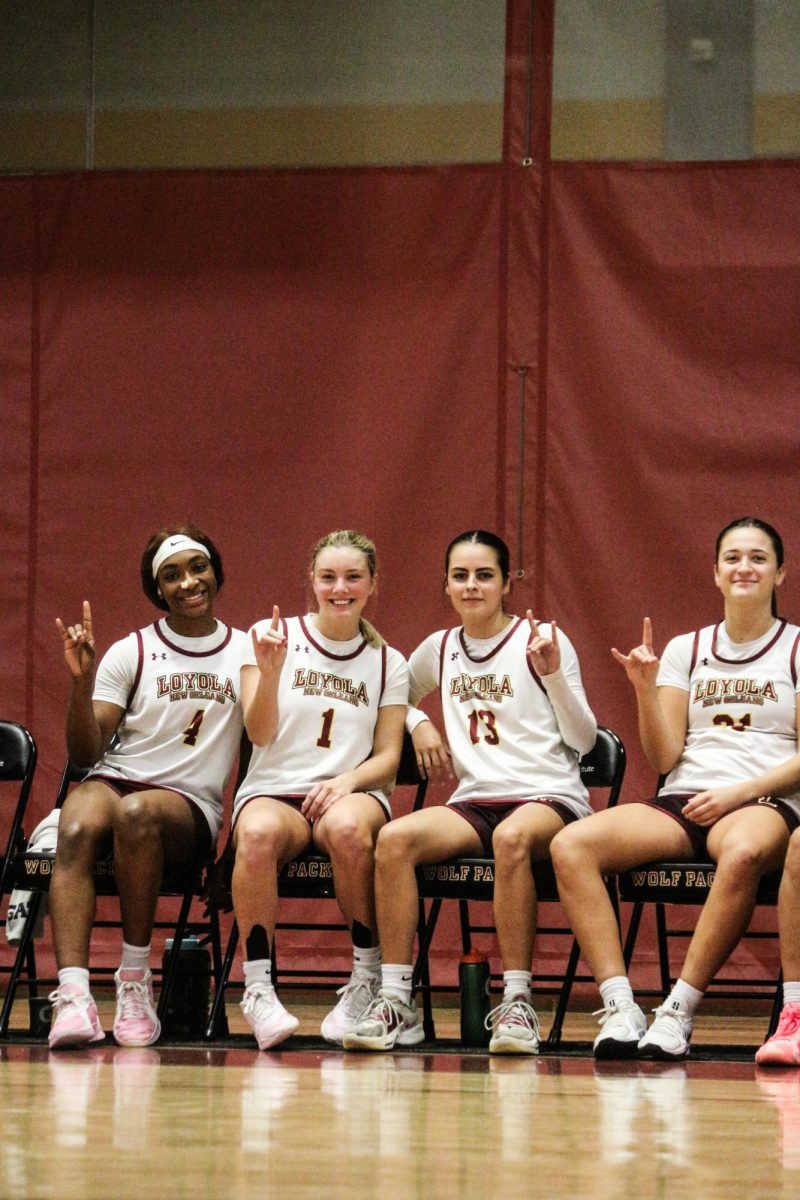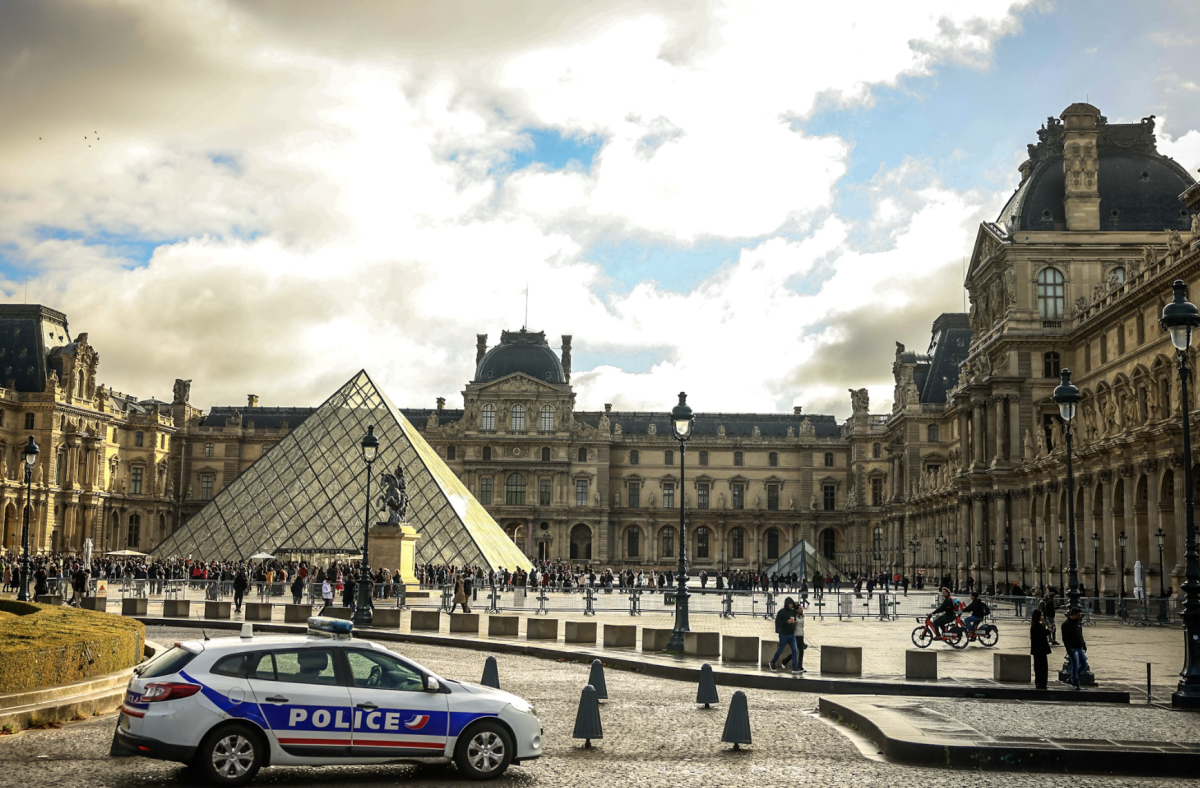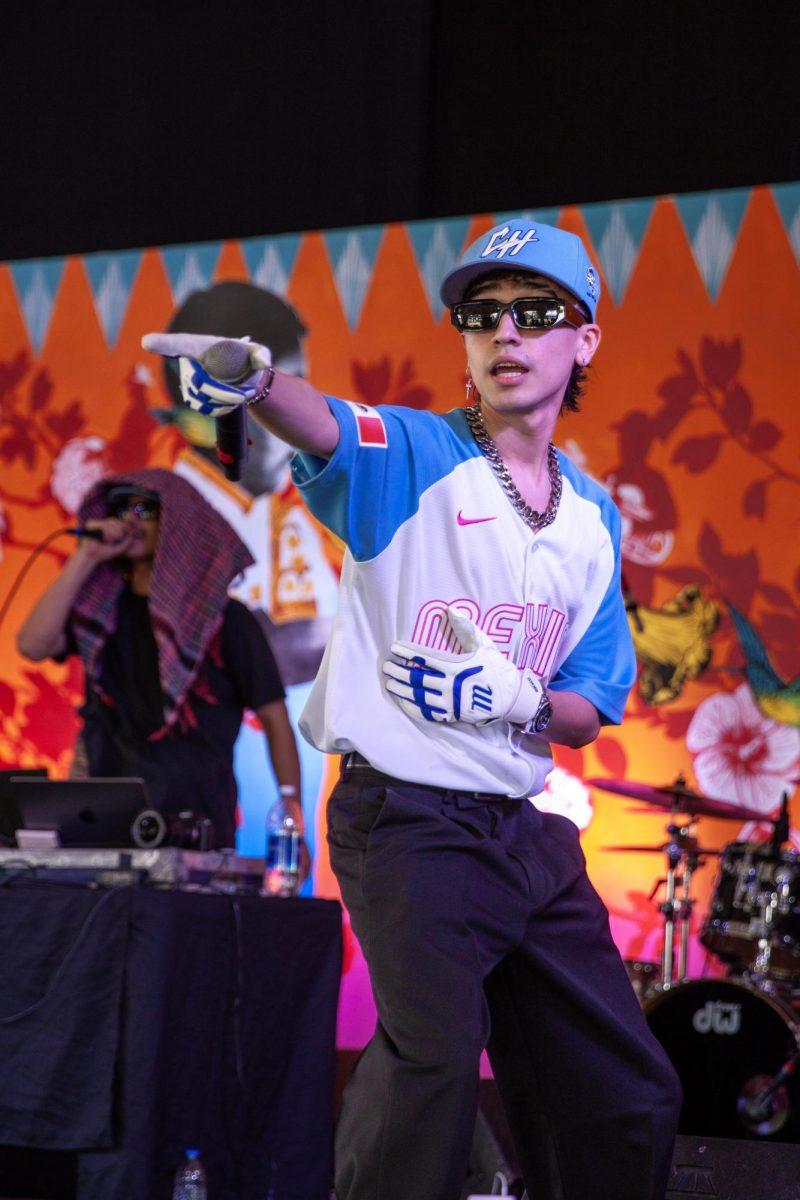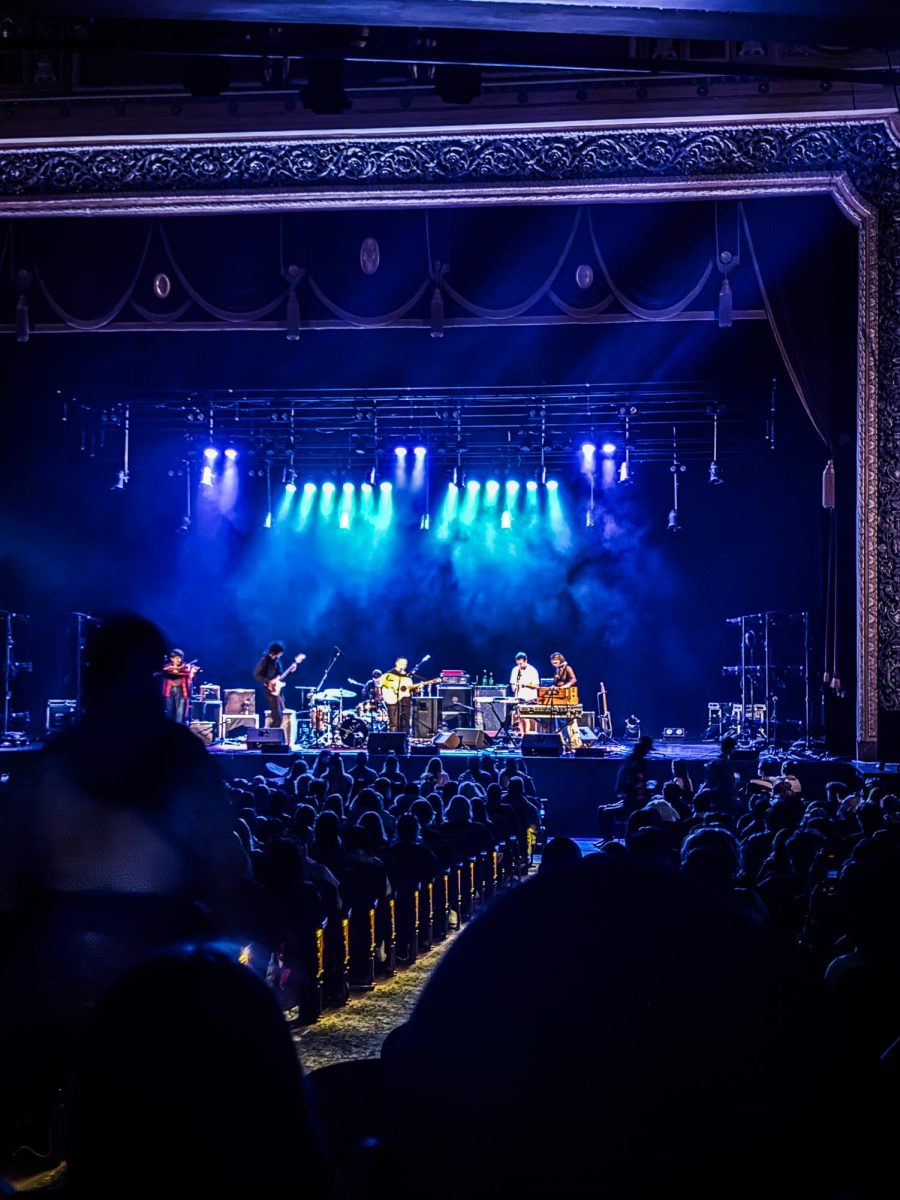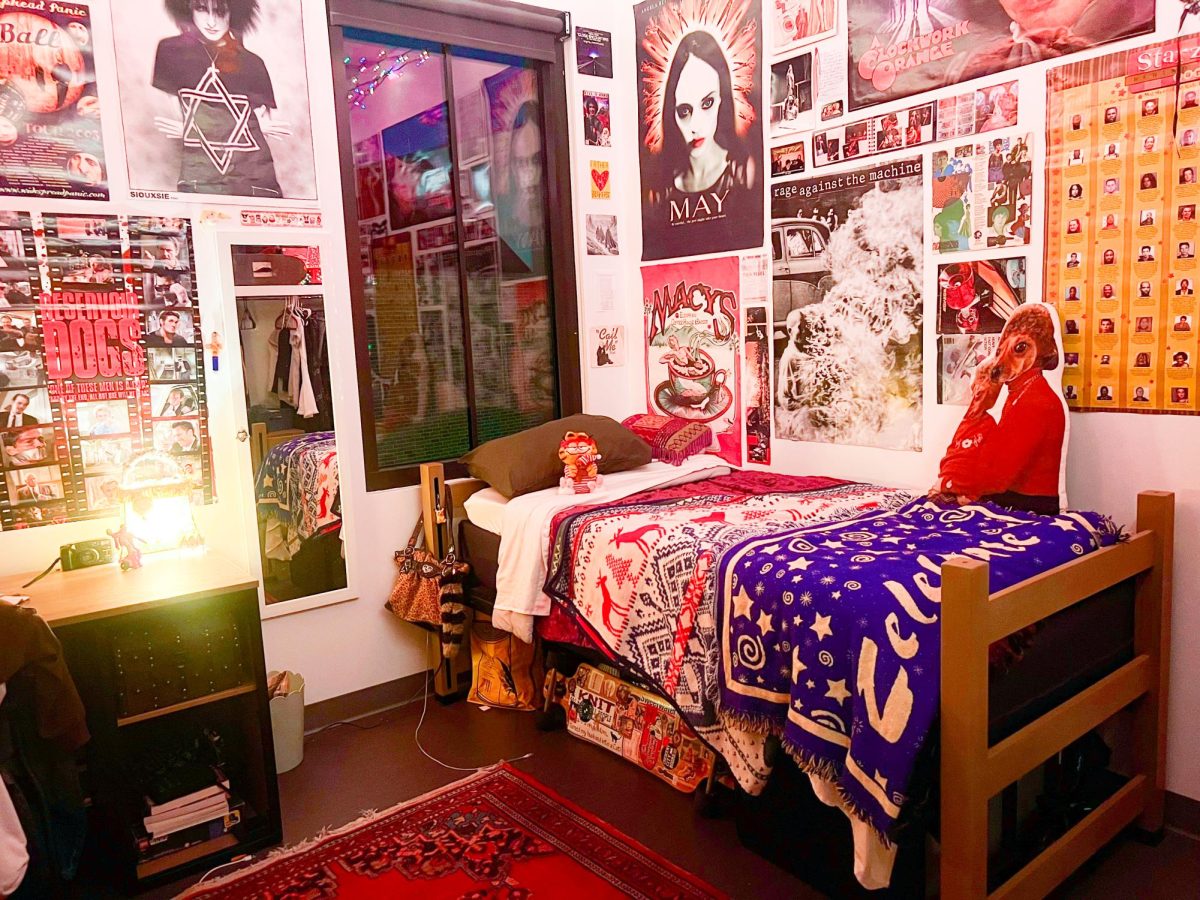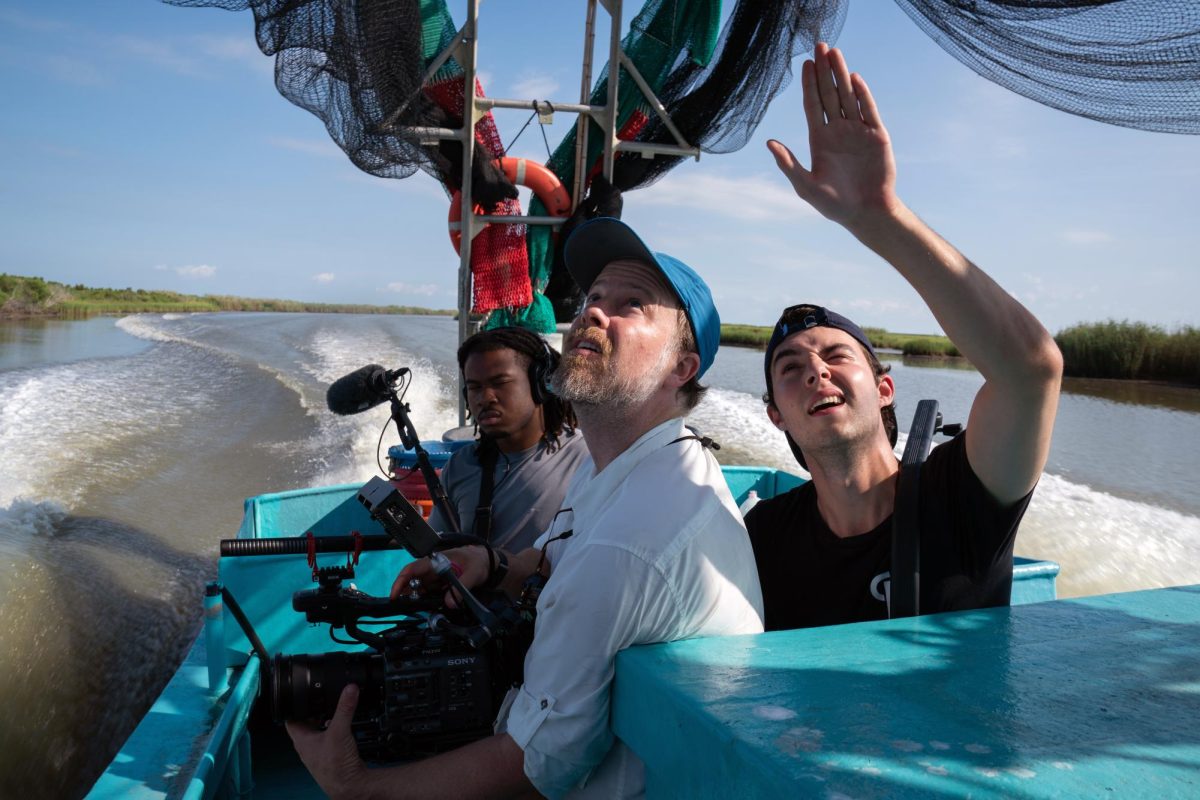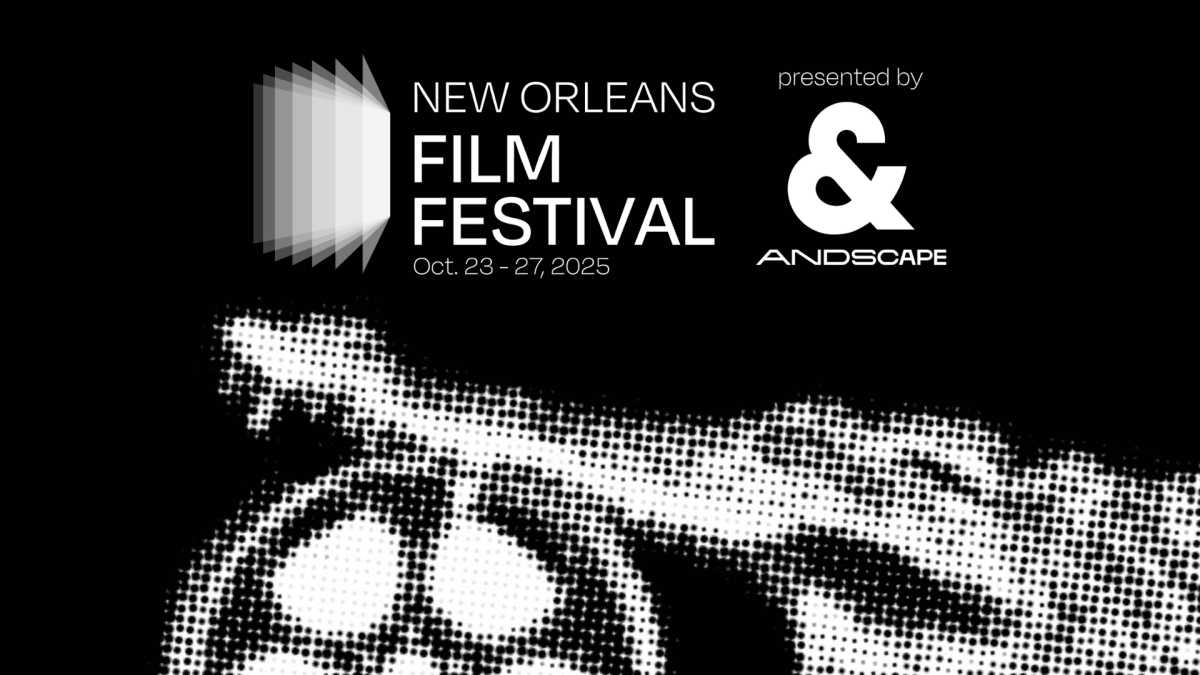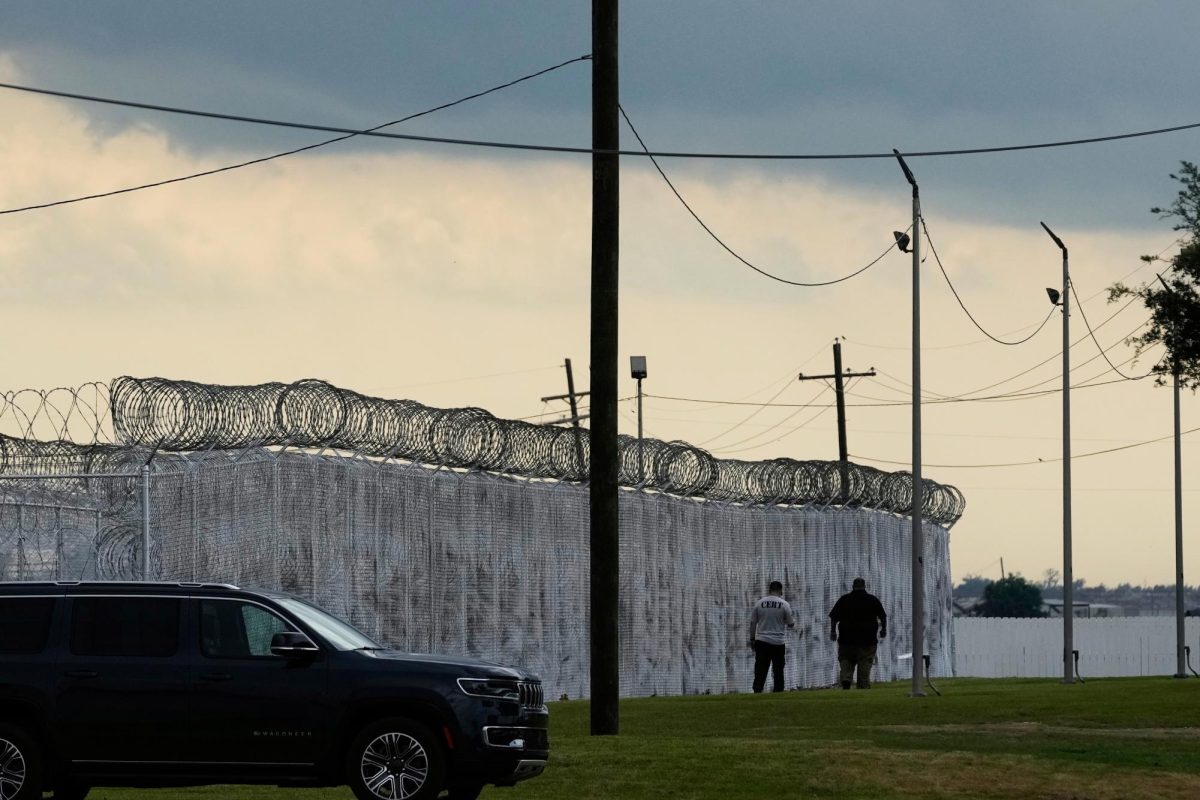Reporter, photographer, assignment editor, News New York Bureau Chief, CBS Director of Recruitment, husband, friend, and professor are just some of the hats that Loyola professor and broadcast journalist Joseph Duke has embraced in his career and life.
With his lifelong career, Duke has reported and experienced earthquakes in Guatemala, meetings between the Ku Klux Klan and civil rights groups, Baton Rouge Board of Education meetings, and, of course, journalistic censorship and political pushback.
“On my very first day, they sent me to cover the East Baton Rouge School Board Meeting. I didn’t know anything about what was going on, nothing,” said Duke. “This is a disadvantage but also an advantage because you have to ask questions, you can’t just accept anything anybody tells you. I just fell completely in love with it within the first week.”
Duke graduated from college with an English degree but soon started working at WBRZ in Baton Rouge. From there, he hopped around from Baton Rouge to Lafayette, then New Orleans, then Houston. Finally, he finished his broadcast career and retired in New York City.
“I retired in February 2010, as a matter of fact,” said Duke. “I was mostly drinking wine and playing golf. I retired in New York, but I knew I was moving home, I knew I was moving back to New Orleans.”
Nowadays, Duke spends his time teaching young journalists the art of his craft at Loyola, enjoying time with his wife, “the lovely Therese,” and golfing with his mates every Saturday at 6:55 a.m.
Duke has been in the journalism game since the 1960s, so he is no stranger to censorship and adversity. With the current state of our government allowing the broadcast and journalism space to be under fire, Duke had expected this mistreatment of public media.
“I suspected it was gonna happen, but I don’t like it. The media has a role, and if you keep me from covering a story, you are keeping the people out,” said Duke. “It’s not me you’re keeping out, it’s the people I report for.”
A lot of the contempt facing journalists nowadays comes from the political space, as journalists highlight the highs and lows of our government.
“There has always been friction between public officials and the media. They are sort of necessary for one another, but they are going to be at odds,” said Duke. “Public officials don’t often like the way you report a story, they often take offense at it. When I first got into the business, an old news person once told me: ‘Respect everybody and revere no one’. Respect all voices, but don’t fall in love with anybody.”
Since every mass communications major that goes through Loyola has to take Professor Duke’s communications writing class, he has a large fan base among Loyola’s students.
“I vividly remember in one class he asked us to stand up and talk about someone we love the most and why. It was such a moving experience, and I think the activity bonded everyone in the class,” said journalism senior Alana Thompson. “A lot of people, myself included, got emotional while we were talking about our loved ones. This moment sticks out to me the most because I think Professor Duke created a comfortable environment for us, which allowed us to feel safe being vulnerable and speaking about those dearest to us.”
Duke created a safe space for many students to learn and explore their talents. He currently teaches two classes at Loyola: On-Camera Performance and Communications Writing.
“Getting feedback on assignments from teachers can sometimes be daunting, but one of my favorite parts of having Professor Duke as a teacher was getting feedback from him.” said journalism senior Hannah Darcey. “His constructive feedback on assignments always motivated me to put my best work forward and reassured me that I am in the right field as a communications major.”
Duke has traveled the world with his career, meeting people from all different backgrounds and reporting for the voices that can’t be heard. He has allowed numerous viewers the knowledge of their community and taught his peers and future generations what he loves, journalism.
“Being a journalist puts you right in the middle of everything. You are living historic moments, but you are not in charge of them, and you are not a part of them ordinarily,” said Duke. “You are covering them. You’re an observer. So we are often not the most guests at the banquet, but that’s our job. Our job is to be the uninvited guest. To report to people who can’t be there, what happened. That’s vital.”





